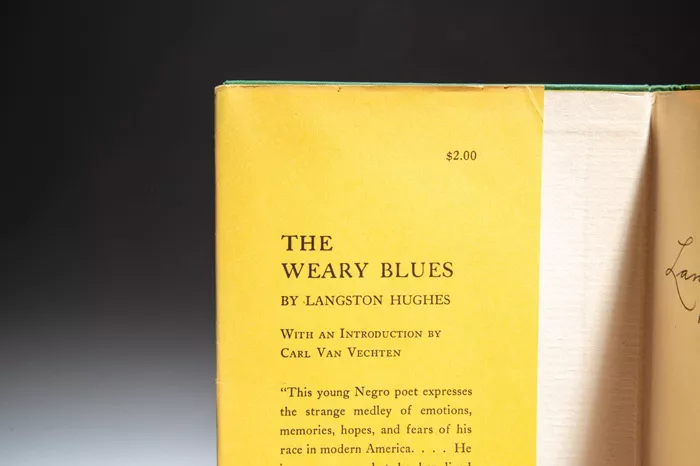Welcome to Poem of the Day – The Weary Blues by Langston Hughes
Langston Hughes was one of the most important voices of the Harlem Renaissance, a cultural movement that celebrated African American art, music, and literature in the 1920s. His poem, “The Weary Blues,” captures the emotions of sorrow, struggle, and resilience through the rhythm of blues music.
The Weary Blues Explanation
Summary of “The Weary Blues”
“The Weary Blues” is a poem about a black musician playing the blues late at night. The speaker describes the scene with vivid imagery and sound. The music is slow and emotional, reflecting the sadness of the performer. The pianist plays with feeling, singing about his troubles and pain. The poem ends with the musician falling asleep, as if his music has drained all his energy.
Themes in “The Weary Blues”
The Power of Music – The poem highlights how music can express deep emotions. The blues, a genre created by African Americans, conveys sorrow and hardship. The musician in the poem uses his song to share his pain.
Struggle and Suffering – The lyrics of the song tell a story of loneliness and hardship. The musician sings, “I ain’t happy no mo’ / And I wish that I had died,” showing the weight of his sadness.
Cultural Identity – The poem celebrates African American artistic expression. The blues is a symbol of the black experience, shaped by both joy and sorrow.
Literary Devices in “The Weary Blues”
Hughes uses several literary techniques to make the poem powerful:
Imagery – The poem paints a clear picture of the musician and his surroundings. Phrases like “rocking back and forth to a mellow croon” help readers see and hear the performance.
Repetition – The repeated phrases in the song reflect the structure of real blues music, reinforcing the poem’s musical quality.
Personification – Hughes describes the piano as “moaning,” giving it human-like emotions.
Rhythm and Sound – The poem mimics the flow of blues music, with a mix of long and short lines that create a musical rhythm.
Conclusion
“The Weary Blues” is more than just a poem; it is a tribute to the power of music and the struggles of African Americans. Hughes masterfully blends poetry and music, making the reader feel the weight of the blues. This poem remains a significant piece of literature, reminding us of the deep emotions that music can convey and the resilience of the human spirit.

